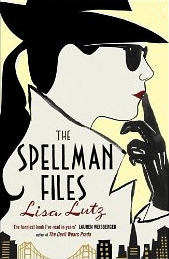 Declining the assistance of his uncles, William Crimsworth proposes to make his own way in the world, starting as a clerk in his brother’s business. The life of an industrial town proving not to his taste, he takes himself instead to the continent and becomes a teacher in Brussels. While supplementing his income by teaching classes at the neighbouring girls’ school, he meets and becomes dazzled by Mlle Zoraïde Reuter, and almost overlooks the quiet little sewing teacher Frances Henri.
Declining the assistance of his uncles, William Crimsworth proposes to make his own way in the world, starting as a clerk in his brother’s business. The life of an industrial town proving not to his taste, he takes himself instead to the continent and becomes a teacher in Brussels. While supplementing his income by teaching classes at the neighbouring girls’ school, he meets and becomes dazzled by Mlle Zoraïde Reuter, and almost overlooks the quiet little sewing teacher Frances Henri.
If I had to pick a single word to describe this novel, it would be “unsettling”. Charlotte Bronte has taken one of the great Victorian virtues - self-improvement - and presented a character in whom that trait is warped into an almost pathological self-sufficiency. William Crimsworth doesn’t know how to ask for help, and isn’t too keen on accepting it when offered. He seems intent on proving that a man can make a good attempt at being an island, if he puts his mind to it. Yet at first he comes across as ordinary protagonist material; it’s only after his confrontation with his brother that the red flags went up and I saw that William could be just as difficult and foul-tempered as Edward.
And difficult he is, looking down his nose at the locals and deeming his Flemish students irredeemably stupid. I began to wonder why on earth he stayed, if he found the company so uncongenial. Fortunately he saw something worthwhile in a few people, at least; and fortunately Zoraïde had the sense to make her plans elsewhere. I liked her better than Frances, I think; she had a greater store of knowledge and a greater supply of backbone. Frances was too mousy and eager to please; and her continued habit of referring to Crimsworth as her master - even after she’d gone from student to fianceé - was a little creepy.
At the end I couldn’t believe in the happily-ever-after; couldn’t shake the notion that Crimsworth wanted a wife only to show he was successful enough to afford one, and wanted Frances only because she piqued him by disappearing and thus proving that she wasn’t completely under his control. Quite what Frances saw in him is a mystery, unless it was that he paid attention to her and was willing to educate her when everyone else was content to leave her overlooked and teaching needlework. To a susceptible person, just being taken seriously can be enormously seductive. But Crimsworth struck me as someone equally incapable of being happy himself, or making anyone else so.
Rating: B-



























